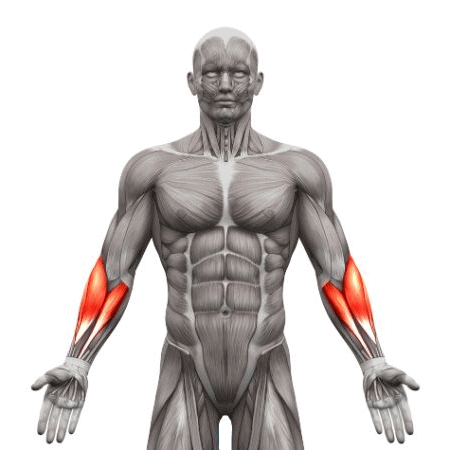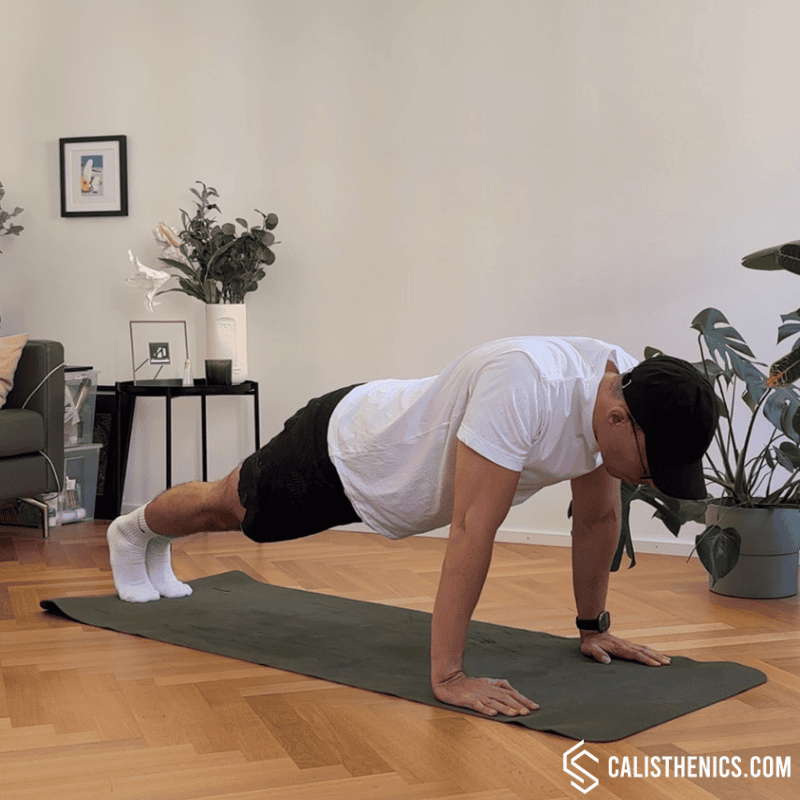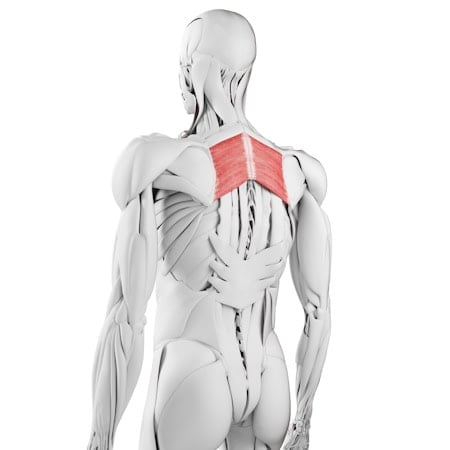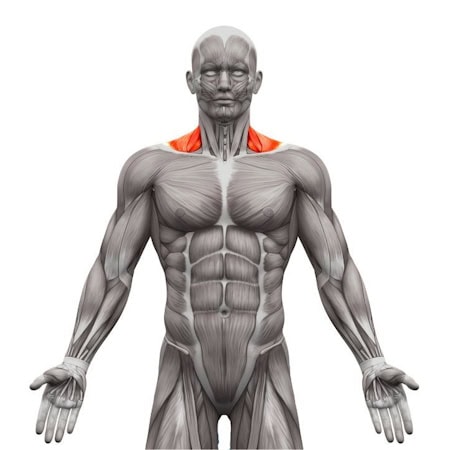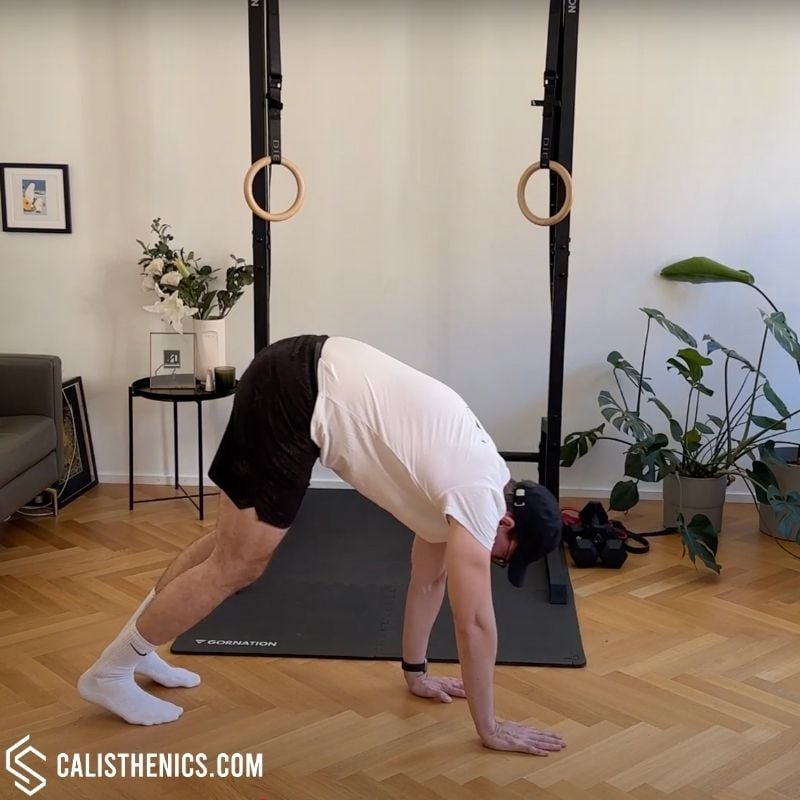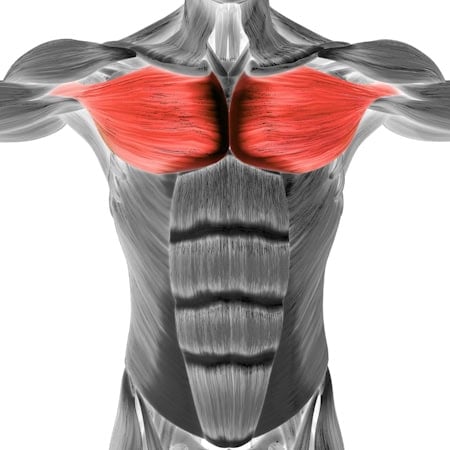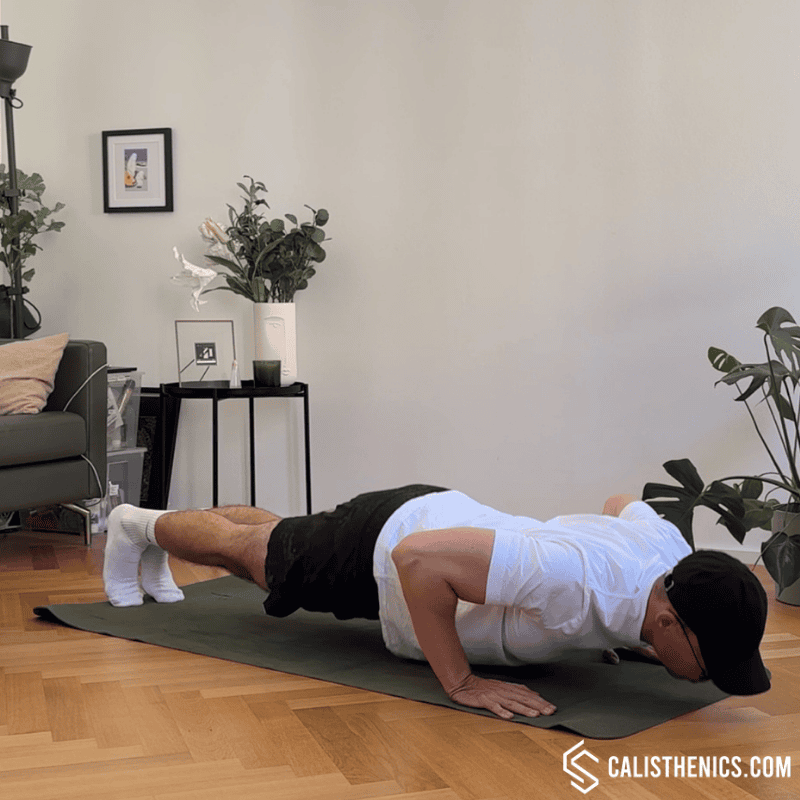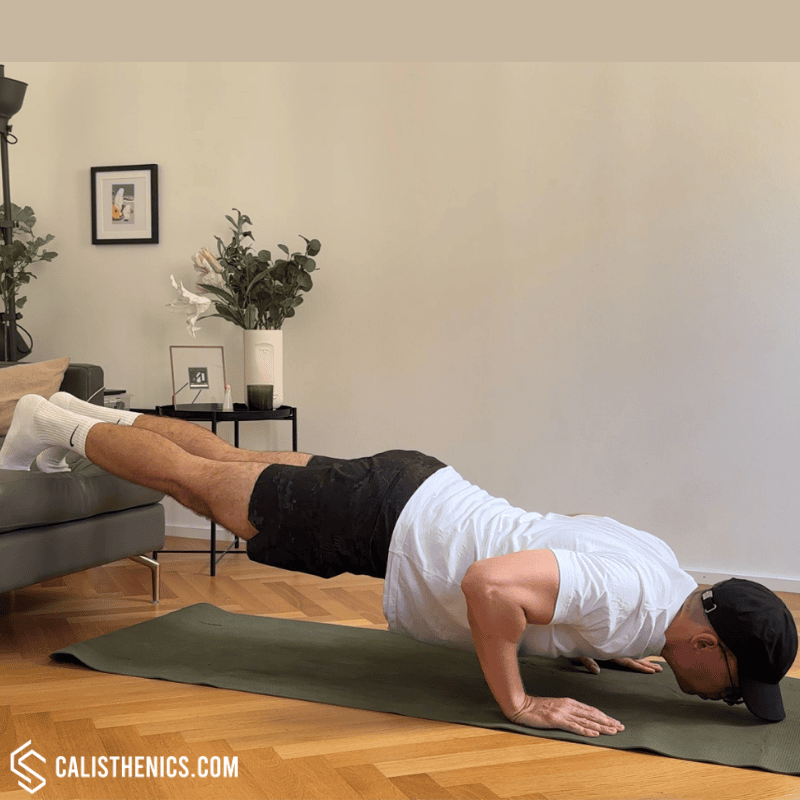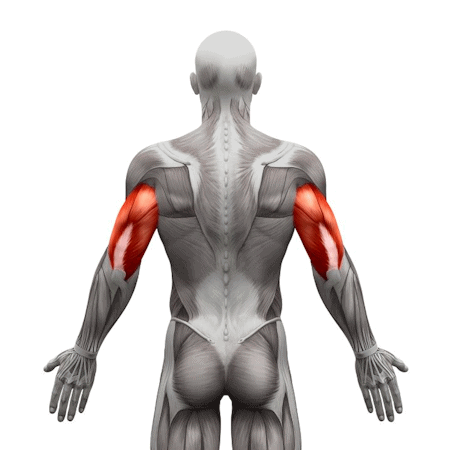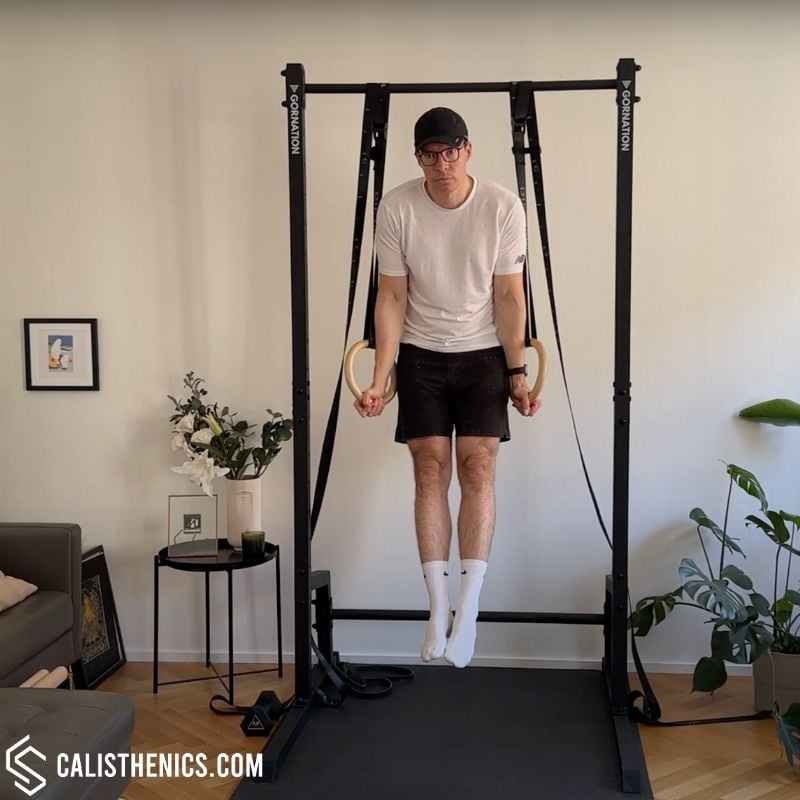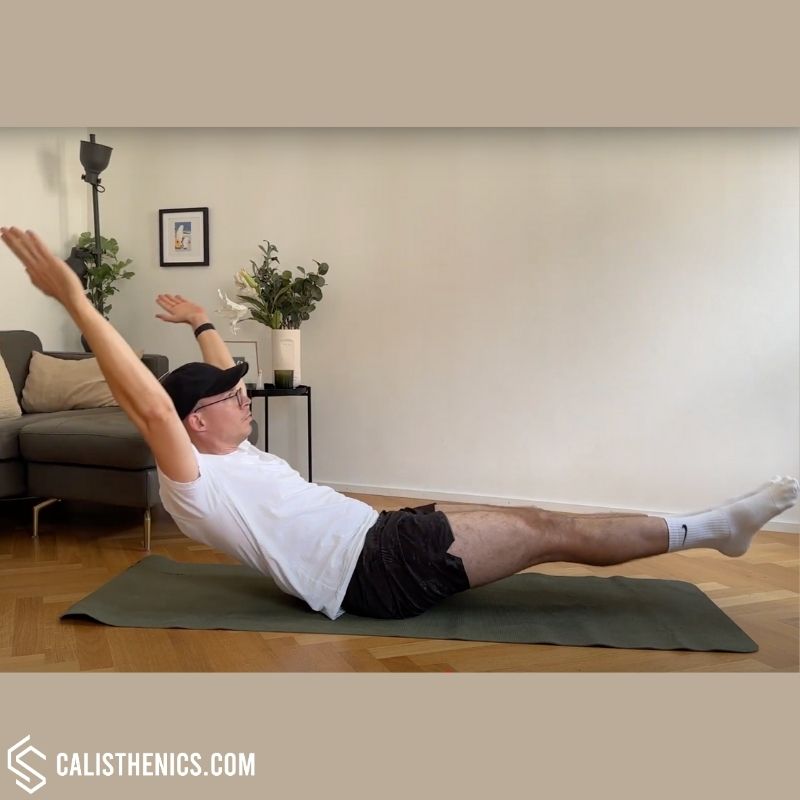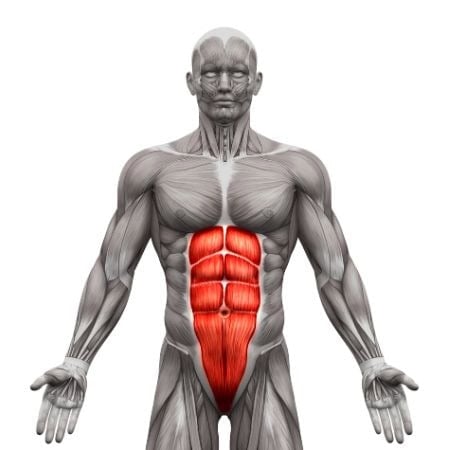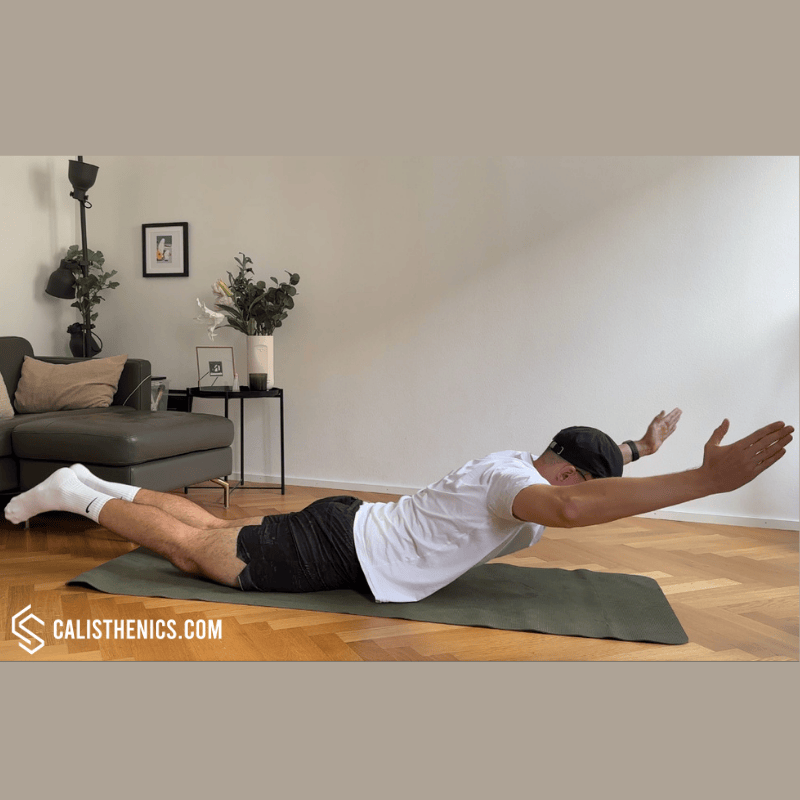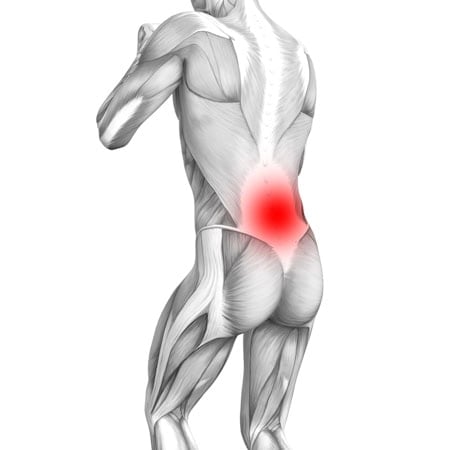🎯 Workout Description:
This workout introduces the key pushing movement patterns and gets you comfortable with the idea of vertical pushing. We’ll use basic push-up and decline variations to build strength, and finish with your first dip-specific hold to build stabilization.
👤 Who It’s For:
Beginners who can do at least 3 push-ups and want to build joint-friendly strength for dips.
🧰 Equipment Needed:
- Parallettes or dip bars,
- Resistance band (optional),
Warm-Up
Goal: Activate shoulders, warm up wrists, and mobilize the pushing chain.
Format:
-
Wrist warm-up routine – 1 round
-
2 rounds (superset format, no rest between exercises):
-
10 Scapula Push-Ups
-
6 Inchworms with Push-Up
-

Muscle group:
Tips
-
Perform this routine before every handstand or push workout.
-
Use a soft mat or towel if your wrists are sensitive to hard surfaces.
-
Pair with scapular and shoulder prep for a complete upper-body warm-up.
-
Spread your fingers during each drill to distribute load.
-
Gradually increase range and pressure over weeks, not in one session.
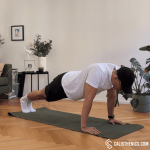
Tips
-
Focus on Shoulder Blade Movement: The goal of this exercise is to isolate the movement of the scapula. Ensure your elbows remain locked and focus on squeezing and spreading your shoulder blades.
-
Core Engagement: Keep your core and glutes engaged to maintain proper body alignment and avoid unwanted movement in the hips or lower back.
-
Controlled Movements: Perform the exercise slowly and with control to fully engage the muscles of the shoulder girdle and prevent injury.
-
Breathing: Inhale as you retract your scapula (lowering your chest) and exhale as you protract your scapula (pushing through your hands and rounding your back).
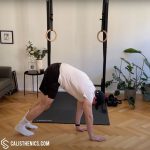
Muscle group:
Tips
-
Keep your core actively engaged throughout to maintain stability and prevent excessive lower-back stress.
-
Walk your hands out progressively further as your strength and flexibility improve.
-
Focus on smooth transitions between each phase of the exercise to improve coordination and body control.
-
Use controlled breathing, matching each movement phase to inhalation and exhalation cycles.
-
Perform regularly as part of your warm-up routine to optimize flexibility, mobility, and upper-body strength.
Strength
Goal: Develop basic horizontal and vertical pushing mechanics and dip position stability.
Structure:
-
Superset A (3 rounds): A1 + A2, rest 60–90 sec
-
Set B (2 rounds): Dip progression
→ Rest 60 sec between all rounds
🟦 Superset A:
-
A1: Negative Push-Ups – 8–10 reps
-
A2: Decline Push-Ups – 3–5 reps
🟩 Set B:
-
Dip Support Hold (Rings or Dip Bars) – 2 sets of 15–20 sec hold
Focus on squeezing your glutes and core during support holds—no shoulder shrugging!
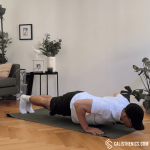
Muscle group:
Tips
-
Focus on Eccentric Movement: The primary focus is on the slow lowering (eccentric) phase. Aim for 3-5 seconds of controlled lowering to maximize muscle engagement.
-
Core Engagement: Keep your core tight throughout the movement to maintain proper body alignment and prevent sagging hips.
-
Elbow Positioning: Keep your elbows close to your body or at a slight 45-degree angle. This will reduce strain on the shoulders and engage the triceps more effectively.
-
Controlled Movements: Don’t rush the descent. The slower the movement, the greater the benefit for building muscle strength.
-
Breathing: Inhale as you lower your body slowly, and exhale as you reset to the starting position.
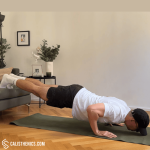
Muscle groups:
If too difficult, do only negatives. The goal is to target the upper chest and anterior deltoids.
Tips
-
Core Engagement: Keep your core tight throughout the movement to avoid letting your lower back sag or your hips rise too high. This ensures proper body alignment.
-
Elbow Positioning: Keep your elbows close to your body (around 45 degrees) to reduce shoulder strain and engage the triceps more effectively.
-
Controlled Descent: Lower yourself slowly to maximize muscle engagement and avoid rushing through the reps.
-
Body Alignment: Ensure that your body stays in a straight line from head to heels, maintaining tension in your core and glutes to prevent sagging.
-
Breathing: Inhale as you lower your body, and exhale as you push back up. Controlled breathing helps stabilize your core and improve endurance.
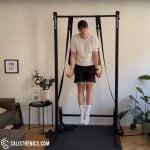
Muscle group:
If you have no gymnastics rings, you can perform them on dip bars too.
Tips
-
Maintain external rotation of the rings (turn them slightly outward) to engage the shoulders properly.
-
Keep a tight core to prevent unnecessary movement.
-
Start with short holds (5-10 seconds) and progressively increase your time.
-
Use a controlled entry and exit to prevent unnecessary strain.
-
Keep the rings close to your body for better control.
Core Burner
Format: 10-minute EMOM (Every Minute on the Minute)
-
Odd Minutes: 30 sec Hollow Body Rocks
-
Even Minutes: 30 sec Arch Body Rocks
→ Rest for the remainder of each minute
Goal: Strengthen your core for better dip control and body alignment.
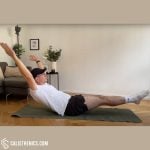
Muscle group:
Tips
-
Engage Your Core Fully: Ensure your abs remain tight to maintain proper form and control throughout the movement.
-
Avoid Using Momentum: The rocking motion should come from controlled engagement of your core, not from swinging your arms or legs.
-
Press Your Lower Back Into the Floor: Keep your lower back in contact with the ground to prevent strain and maximize core engagement.
-
Start Slow: If you’re new to the exercise, perform small, controlled rocks and gradually increase the range of motion.
-
Breathe Steadily: Don’t hold your breath; steady breathing helps maintain tension and focus.
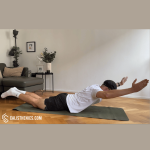
Muscle group:
Tips
-
Maintain a Strong Arch: Focus on keeping your chest and legs lifted off the ground throughout the movement. Your body should remain in a solid arch shape, with tension in your back, glutes, and shoulders.
-
Engage Your Core: Although this exercise primarily targets the posterior chain, keeping your core engaged will help stabilize your body and maintain balance during the rocking motion.
-
Controlled Movement: Avoid jerking or using momentum. The rocking should be slow and controlled, driven by muscle engagement rather than swinging
-
Breathing: Breathe steadily throughout the movement. Exhale as you rock forward and inhale as you rock backward. This will help you maintain control and endurance.


